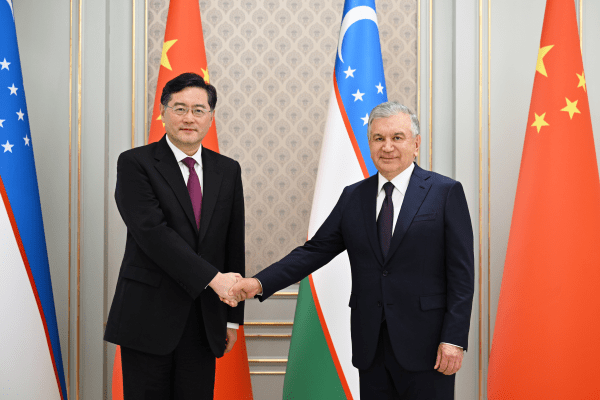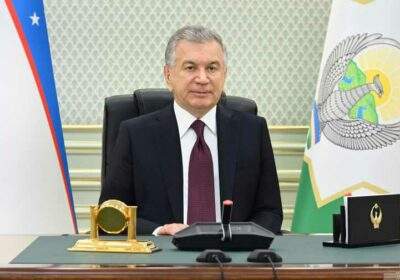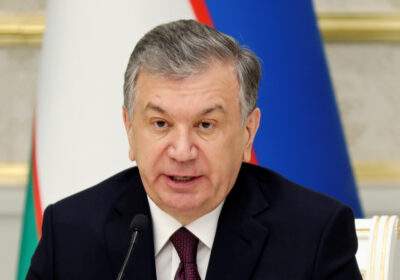
Shavkat Mirziyoyev: A Remarkable Journey of Leadership and Progress
The realm of global politics and leadership, few stories are as intriguing and inspiring as that of Shavkat Mirziyoyev, the President of Uzbekistan. Born on July 24, 1957, in the village of Jizzakh, Mirziyoyev’s life journey has been one of dedication, determination, and transformation. From his humble beginnings to his current role as the leader of Uzbekistan, Mirziyoyev’s career, net worth, and biography encapsulate a narrative of growth and progress.
Early Life and Rise to Power
Mirziyoyev’s early life was marked by modesty and perseverance. Growing up in a rural setting, he developed a strong work ethic and a deep understanding of the challenges faced by ordinary citizens. After completing his education in engineering and economics, Mirziyoyev began his political career, gradually ascending the ranks within the Communist Party of the Soviet Union. His experience and dedication did not go unnoticed, and he was appointed as the Prime Minister of Uzbekistan in 2003.
Political Reforms and Modernization
Shavkat Mirziyoyev’s presidency in Uzbekistan has been characterized by a series of bold political reforms and a dedicated push towards modernization. These reforms have not only reshaped the nation’s political landscape but have also had a profound impact on its economy, society, and international relations. Let’s delve deeper into the political reforms and modernization efforts spearheaded by President Mirziyoyev.
Easing of Repressive Policies
Upon assuming office, Mirziyoyev embarked on a path of change by gradually dismantling some of the repressive policies that had characterized his predecessor’s regime. This included efforts to improve human rights, reduce censorship, and promote greater freedom of expression. Political prisoners were released, and steps were taken to address issues of forced labor and child labor in the cotton industry.
Decentralization and Local Governance
One of the most notable aspects of Mirziyoyev’s reforms has been his emphasis on decentralization of power and strengthening local governance. He recognized that centralizing power in the capital, Tashkent, had hindered effective governance and development in other regions. To address this, he initiated a process to devolve power to local authorities, enabling them to make decisions that are better suited to the needs of their communities.
Fighting Corruption
Corruption has long been a challenge in Uzbekistan, and Mirziyoyev made it a priority to combat this issue. He established anti-corruption agencies and launched campaigns to root out corrupt practices within government institutions. This effort was not only aimed at improving transparency and accountability but also at creating a more favorable environment for foreign investments.
Economic Reforms and Diversification
Mirziyoyev recognized the need to diversify Uzbekistan’s economy, which had been heavily reliant on commodities like cotton and natural gas. He implemented measures to attract foreign investments, streamline business processes, and promote entrepreneurship. Special economic zones were established to encourage innovation and investment, and steps were taken to improve the ease of doing business.
Digitalization and Technological Advancements
As part of his modernization drive, Mirziyoyev emphasized the importance of technological advancements and digitalization. Efforts were made to improve internet access, enhance digital services, and promote the use of e-governance platforms. These initiatives not only increased efficiency in government processes but also facilitated greater connectivity and access to information for citizens.
Regional Diplomacy and Cooperation
Mirziyoyev’s approach to foreign policy has been marked by a desire to foster regional cooperation and stability. He engaged with neighboring countries, particularly within Central Asia, to address common challenges such as water management, border disputes, and economic integration. This cooperative approach has contributed to a more harmonious regional environment and improved relations with Uzbekistan’s neighbors.
Economic and Social Reforms
One of Mirziyoyev’s most significant achievements as President has been his commitment to economic diversification and social development. He launched a comprehensive program to attract foreign investments, streamline bureaucratic processes, and improve the business climate. These efforts led to an increase in foreign direct investment and a boost in economic growth. Additionally, he focused on modernizing the agricultural sector and investing in infrastructure, education, and healthcare.
Foreign Policy and Diplomacy
Mirziyoyev’s tenure has also been marked by a renewed approach to international relations. He aimed to strengthen Uzbekistan’s ties with neighboring countries, promote regional stability, and enhance cooperation in areas such as trade, security, and energy. His efforts to engage in regional diplomacy, particularly with Central Asian nations, have contributed to a more interconnected and stable region.
Net Worth and Personal Life
As of my last knowledge update in September 2021, specific details about Shavkat Mirziyoyev’s net worth are not widely available. However, it’s important to note that leaders in political office, particularly in countries with significant state influence, often do not have their personal financial information disclosed publicly in the same way as individuals in the private sector.
In terms of his personal life, Mirziyoyev is known to be a private individual, keeping his family and personal matters out of the public eye. His focus on governance and policy has defined his public persona, and his dedication to his role as a leader is evident in his actions and decisions.
Legacy and Future Prospects
Shavkat Mirziyoyev’s presidency has ushered in a new era of optimism and progress for Uzbekistan. His commitment to reform, economic growth, and regional cooperation has earned him recognition both domestically and internationally. As he continues to navigate the complex landscape of governance and leadership, his legacy will likely be defined by the lasting impact of his reforms and his role in shaping Uzbekistan’s trajectory on the global stage.
Conclusion
Shavkat Mirziyoyev’s career, net worth, and biography paint a picture of a leader who rose from humble beginnings to guide his nation through transformative change. His story serves as an inspiration for aspiring leaders and underscores the power of dedication and vision in driving progress. As Uzbekistan continues to evolve under his leadership, the world watches with anticipation to see the enduring mark he will leave on his country and the wider geopolitical landscape.
















